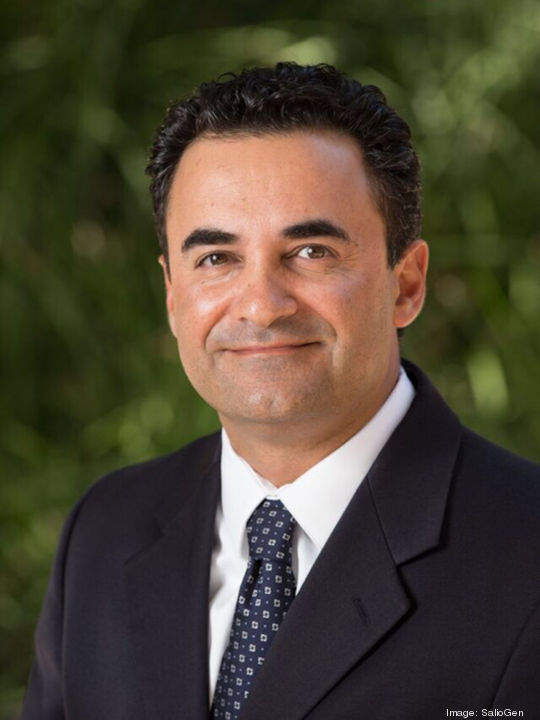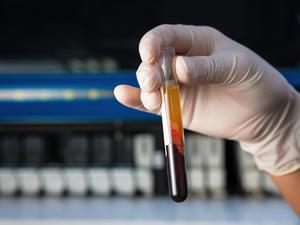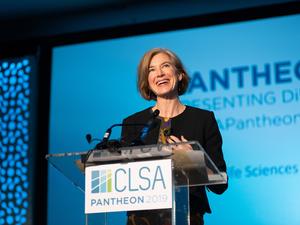
A new biotech is emerging from stealth to develop what its CEO calls "third-generation gene therapy."
Founded by former Human Genome Project researcher Joseph Higgins, SalioGen Therapeutics launched Monday with $20 million in Series A funding. The company plans to advance a gene therapy platform that works by integrating genomic code into the existing genome using a mammalian-derived enzyme, rather than the bacterial or viral vector that underpin the gene therapies and CRISPR/Cas9 gene-editing technologies.
"We can treat any number of genetic diseases, because we put a code in," said CEO Ray Tabibiazar. "CRISPR cuts. This is more of a paste function."
Tabibiazar's says that SalioGen's platform eliminates several main problems that come with other gene therapies. Because the technology is inserting new code, they are not limited by the size of the gene they're targeting. The platform also doesn't rely on viral vectors, reducing manufacturing costs and increasing treatment access.
"It gives you broad applicability to the number of diseases you can treat and the number of patients you can treat," Tabibiazar said. "This is a natural evolution of where gene therapy goes. With any field, you start narrow, and then you broaden your applications."
With the Series A round, SalioGen will validate its platform in preclinical animal trials, with the hopes of entering the clinic by the end of 2023. PBM Capital, a health care-focused investment firm, led the round, which also included other, undisclosed investors.
The Burlington-based startup currently employs team of just six full-timers. Tabibiazar plans to quintuple headcount by the end of the year, to 30 employees, and increase again to 70 by the end of 2022.
SalioGen will also use the new financing to begin investigating applications for its technology beyond therapeutics. Tabibiazar thinks the platform — which he and his team have named Exact DNA Integration Technology, or EDIT — could speed up existing manufacturing processes for stem-cell therapy, CAR-T therapy and even even adeno-associated viruses, which typically serve as viral vectors for existing gene therapies.
Down the line, Tabibiazar sees potential for EDIT in the agriculture and plastics manufacturing industries, among other areas.
"There's a lot of applications even outside health care and life sciences that would benefit from gene coding," he said. "How can we apply this to other areas outside of therapeutics? That's something I think would be interesting."







